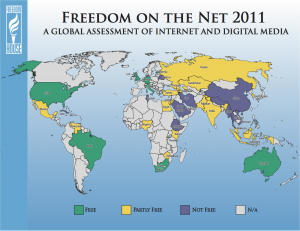
June 28th, 2012 will be a day that will go down in history. Unless you’ve been living under a rock, you are well aware of the Supreme Court decision upholding the controversial Obamacare law as constitutional. Given the court’s record of going along with the massive expansion of federal government power over the last century, the decision wasn’t surprising. However, the manner in which the Supreme Court handed down the decision is as puzzling and convoluted as it is frightening.
Again, given past decisions such as Wickard v. Filburn, for example, which supported the federal government’s claim that food grown on private property for private use could be regulated as interstate commerce, the decision on Obamacare isn’t surprising. It was expected that the decision would be a close split with likely one justice making a critical swing vote. What wasn’t expected was that it would be Chief Justice John Roberts, normally a conservative-minded judge, voting to uphold the law. Additionally, while the law was upheld, it was not upheld under the interstate commerce clause as was expected. The court decided that the law was instead constitutional under congress’ power to tax, refuting the Obama administration’s vehement claims that the law did not constitute a tax increase. In fact, the majority opinion sided with the minority stating that the law could definitively not be enforced under the interstate commerce clause, which is what the opposition claimed all along.
What we end up with is a defeat of the law under one clause combined with a bizzare upholding of the law under an unexpected authority, one which the proponents themselves were vigorously trying to avoid exercising. So on one hand, opponents of the law and opponents of overreaching federal power gain a potential victory in what could be seen as a reversal to the Wickard v Filburn decision. On the other, proponents of the law have their victory but more alarmingly, big-government politicians have a potentially destructive new weapon. As if the government didn’t already abuse the commerce clause as well as the “necessary and proper” clause, now the court has set a precedent for the government to further abuse the power of taxation as the basis of any new law they wish to pass or program they wish to enact. What they’ve essentially said is that the federal government only needs to enact penalization of non-compliance of any future program and it’s all good with the Constitution under the guise of taxation.
Many people have tried to rationalize the decision and Justice Robert’s seemingly inconsistent vote. They say the court was trying to avoid politics and perhaps even win a bigger victory with the denial of the commerce clause authority. However, at this time it is extremely hard for me to see the logic in this. I can not see that a Justice concerned with the overreach of federal power would find it prudent to suddenly give the government a powerful new method to abuse their power. Overall, I can only see the decision as yet another failure of the court to protect the Constitution and our freedoms. It ranks right up there with the failures of Wickard v Filburn and the Dred Scott case.
Chief Justice Roberts wrote the majority opinion and is quoted, “It is not our job to protect the people from the consequences of their political choices.” No, but it is your job to protect and uphold the Constitution. On this you’ve failed miserably. It is clear that we can no longer count on the Supreme Court to protect us from the unconstitutional actions of the other branches – it is up to us to save ourselves. So all we can do is follow Justice Roberts’ back-handed advice and change our political choices. In fact, I have great hope that in the future, June 28th, 2012 will be seen as the zenith of big-government and this decision as the power keg that set off a revived American revolution. One that reversed the past 100 years of expansive government and returns the country to its roots of liberty and freedom.








